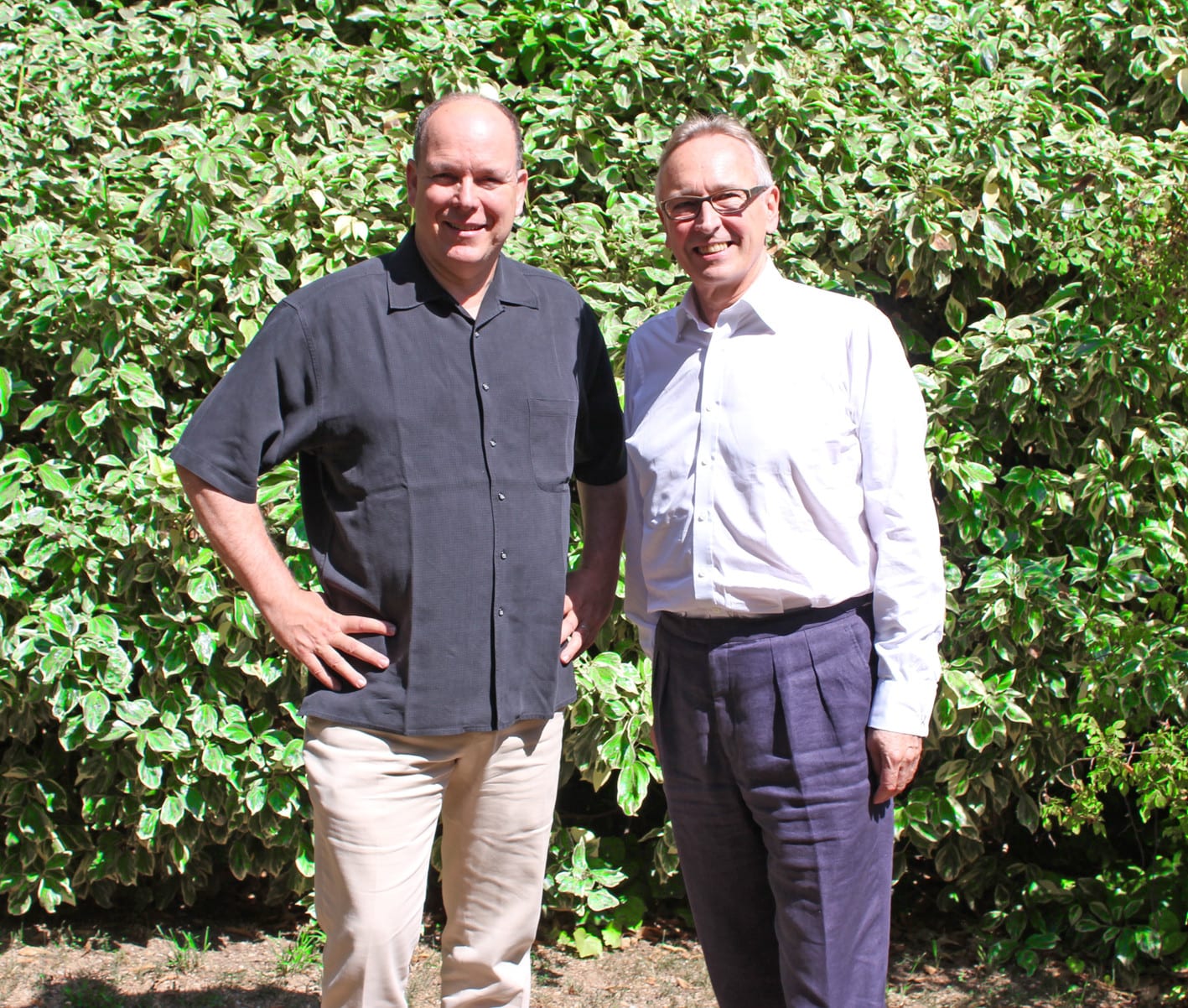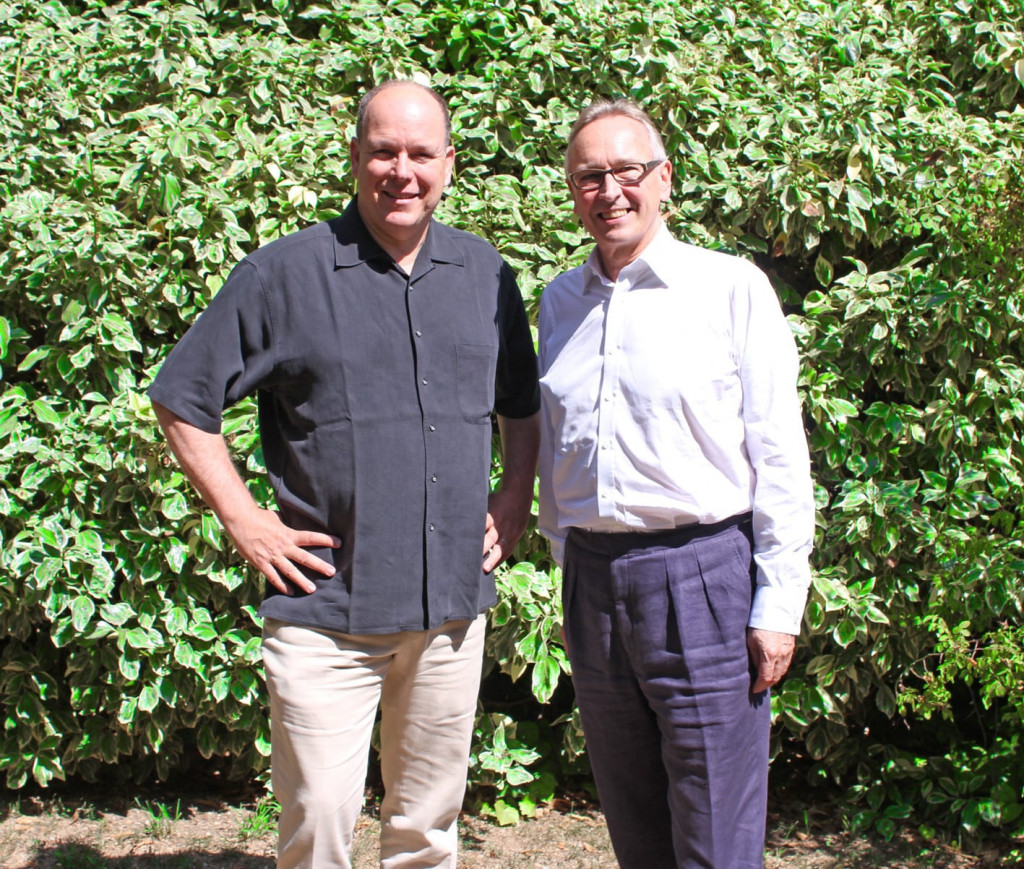
Since CleanEquity® Monaco launched its first edition in 2007, over 270 technologies from 36 countries have presented at the emerging cleantech conference, held annually in the Principality under the High Patronage of HSH Prince Albert II.
Prince Albert lends much more than just his name to CleanEquity® Monaco. He co-founded the invitation-only conference, with Mungo Park, Chairman of Innovator Capital.
The unrivalled success of CleanEquity® Monaco is illustrated not only by the scope and volume of its participants: over the years – over 1,800 people from corporate, professional and strategic family investors, entrepreneurs, academics, policy makers, diplomats and end users, but also by the consequences: $1.7 billion (€1.41 billion) raised, so soon after the event, by attending companies, such as Primus Power, a flow battery for large scale energy storage ($32 million/€26.6 million) and Benson Hill Biosystems plant biology ($25 million/€20.7 million).
Also associated with CleanEquity® Monaco, is the Nobel Sustainability Trust®, which founded the Nobel Sustainability Fund. The fund was seeded by Monaco’s Constitutional Reserve Fund and was announced on 22nd September, 2016.
“Sustainable technology research and development will raise awareness of the crucial role innovation plays in the mitigation of environmental impacts,” Mr Park stated at the time of the announcement.
Over the course of 2017, Monaco Life has been publishing the “Becoming Clean” series, which features 10 people, from investors to inventors, who have helped CleanEquity® Monaco become the leading cleantech conference worldwide.
To acknowledge the first breakfast meeting between the co-founders in 2006, I was honoured to sit down with Prince Albert and Mungo Park to discuss CleanEquity® Monaco.
In the beginning
Prince Albert and Mungo Park met over 30 years ago in Monaco. Casual exchanges on topics as varied as animals in danger of extinction, a subject of keen interest to His Serene Highness, and the link between disease and the environment, developed into deeper discussions about reducing illnesses by reducing toxic emissions.
A year after Prince Albert’s ascension to the throne in 2005, he launched the Prince Albert II of Monaco Foundation, which coincided with his expedition to the North Pole. Around this time, Prince Albert invited Mr Park to breakfast to discuss various environmental initiatives. The idea of a conference emerged, a way of brining new technologies that address environmental issues to Monaco. CleanEquity® Monaco hosted its first edition in 2007.
“To have a project like this, the coming together of different minds and some quite remarkable people, is paramount,” Prince Albert told me. “We tried to address viable economic solutions that were only starting to emerge then, human health issues – waste management, recycling air quality, the fight against diseases – that are becoming increasingly difficult and problematic.”
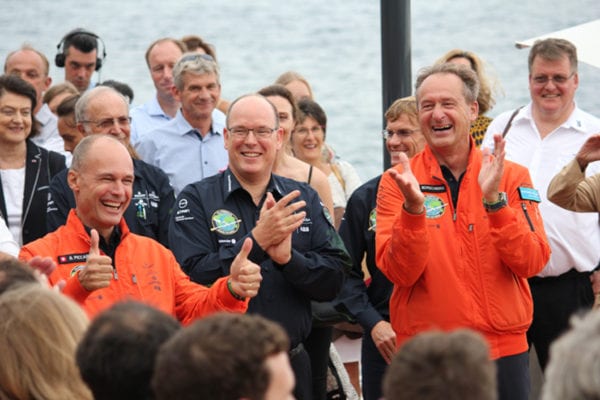
ML: Your Highness, you have always been outspoken about the environment and sustaining the planet for our children. Can the origins of this passion be pinpointed to a specific time in your life?
HSH: I was made aware of these issues a long time ago. I saw through different journeys that it was not only an important issue but it was getting worse and that some of us had to at least try to help find solutions. We are not going to do this alone. When you put different minds, and people from different background too, together you always end up with interesting things. Look at artists; if you assemble musicians from different genres, they always enjoy playing together because it’s a different sound and a different way of expressing their art. Why can’t this be possible in other domains and other walks of life?
ML: When you engage in dialogue with other heads of states about finding viable solutions to environmental issues, do you find there is enough follow though in their commitment?
HSH: Most of the smaller European nations agree in principle that they should be involved in finding solutions. In some countries leaders are trying to do things in their own way but they have to be careful because they are not in office for a huge amount of time and they are being pressured by other groups to prioritise.
One head of state that did surprise me in his intent to improve things in his own country was the president of China, Xi Jinping. When I was in China for the Youth Olympic Games in Nanjing, I was able to ask him about his policies and he was very open in his conversation, saying that the environment was a priority for his government because they had realised that air pollution and water pollution were becoming huge health issues and so they are putting in place many more sustainable practices.
Nations such as China have such huge energy needs that they still rely very heavily on an unsustainable energy source – coal, the transition to renewables will take time, but at least they are willing to do something about it. Importantly, they want to keep in line with the Paris agreement. There’s a vacant spot in world leadership on this, the Chinese, thankfully, are all too happy to take that leadership.
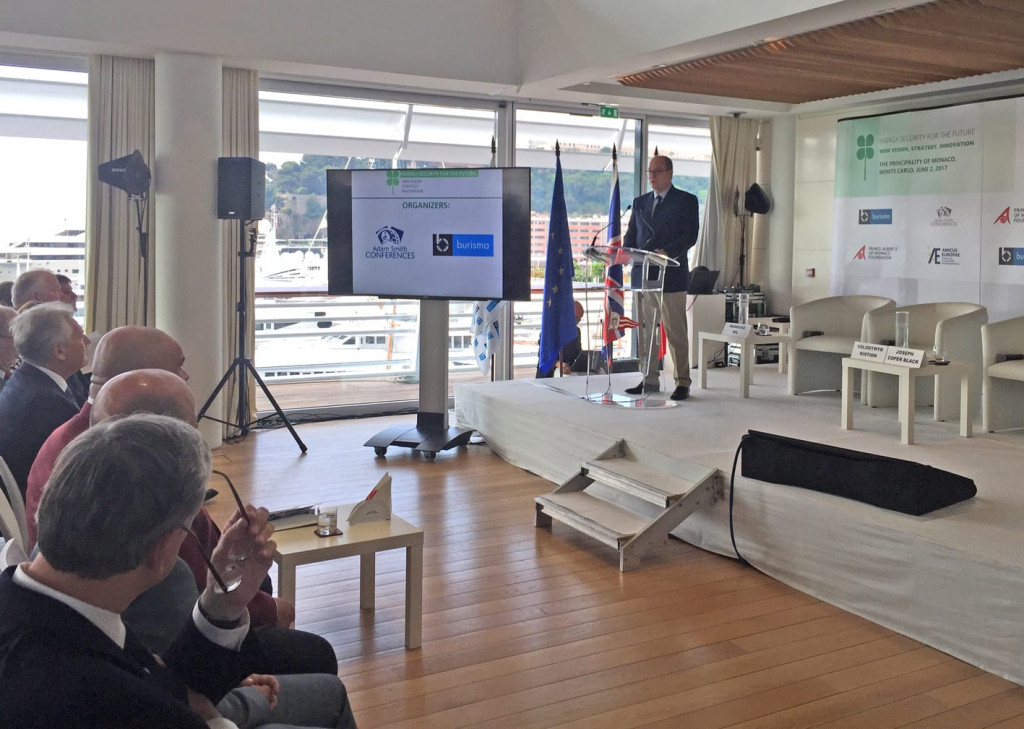
ML: In terms of energy security, which you discussed in your opening speech at the Energy Security Forum in June, are other countries stepping up to the plate?
HSH: Not at a fast enough pace. Sometimes our priorities get lost in what others feel are more pressing issues. While there is more awareness now, it still needs to be improved.
ML: What were the specific objectives when CleanEquity®Monaco was launched ten years ago?
MP: His Serene Highness hit the nail on the head when he said what is needed is a strategy to reach economically viable solutions. There are solutions to everything, in my opinion, that are viable economically. Investors should not have to be cajoled or pressured into supporting something simply because it is going to do good for humans or animals or the land. It has been demonstrated that these objectives can be reached economically and commercially and many people still have not received or understood that message.
Engineers and inventors need to devote as much of their time as possible to finding innovative and viable solutions rather than looking for funds. If they spend one out of every three years on the road raising money for their inventions, it’s not practical. CleanEquity® Monaco was designed to address this, to bring people together, over two days, who could enable the scientists, engineers and inventors to accelerate what they were doing.
ML: Seth Grae, CleanEquity® Monaco 2016 Award Winner commented that CEM was “the best experience I’ve had at a conference. The investors are high-end and are interested in both profits and environmental sustainability. The presenting companies have been well-screened.” What is the screening process?
MP: Innovator Capital usually looks at over 600 innovations a year, which we must reduce to a manageable 25 to 35 as they are screened: can the technology be viable economically? Can board and management run the company? Can they develop the technology? Does it work? Is it protected? Is it world relevant? These are the key criteria which a company needs to have for itself to be sustainable, only then will investors be more likely to pursue the opportunity.
For example, a solar technology company that only works in Monaco is not viable but if it works anywhere in the Northern or Southern hemisphere, even on the poles in their summers, then it is viable. Selection is by merit and while most of the technologies come from the US and the UK, CleanEquity has had representatives from 36 different countries. A variety of investors and potential partners come to Monaco seeking to provide a company with anything it could possibly need within the following 24 months. This means that the company can get on with its work, knowing that management don’t have to go out and look for investment again for two years. So that was the strategy, to help accelerate towards commercialisation.
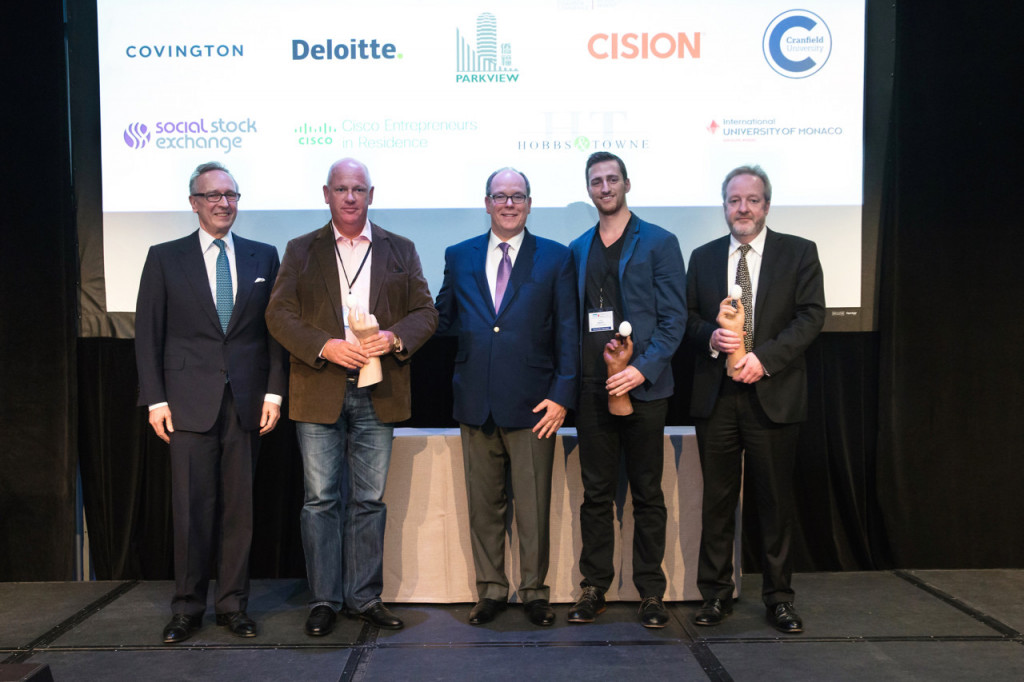
ML: Your Highness, do you have a say in the theme or who should win one of the three awards – Excellence in the Field of Technology Research, Excellence in the Field of Technology Development or Excellence in the Field of Technology Commercialisation?
HSH: The theme is pretty widespread, although solar energy was rather over represented to start with.
My main role is to present the awards. I do contribute to the discussions about the merits of the different candidates and I ask questions but the final approval comes from the judges.
ML: What is the significance of Monaco seeding the Nobel Sustainability Fund?
HSH: This says, loud and clear, that we encourage and support these kinds of initiatives, that we are one of the countries which is viewed as a serious player at helping fund sustainable energy projects and technology development. It shows that Monaco’s commitment is strong and consistent.
ML: Your Highness, can you comment on the MonacoTech Incubator and Accelerator startups program, which launched in Monaco earlier this spring?
HSH: MonacoTech encourages entrepreneurship and startups in fields such as fintech, healthtech or smart cities in Monaco and if these businesses don’t require a lot of space, we can help and they are welcome to stay in Monaco.
ML: Any future development plans for CleanEquity® Monaco?
MP: We’re talking about CleanEquity 2018 session on Africa. Africa is a huge resource with a rapidly growing population. It is severely disadvantaged in many ways. There are probably more starving people in Africa than any other continent. Financial aid is not the only solution, we should employ a sustainable model, using some of the allocated financial aid, by sending technologies and engineers to enable countries that need assistance to improve the harvest, to improve the irrigation, to clean the water, to provide affordable energy and provide refrigeration for medication in hospitals. Sixty per cent of the companies coming to CleanEquity are from the UK and the USA and the way I look at it, we have technologies that could help.
CleanEquity® Monaco takes place March 8th-9th, 2018. Article first published September 24, 2017.
RELATED ARTICLES: Becoming Clean Series
READ ALSO:
Prince Albert II Foundation: a ten-year retrospective with HE Bernard Fautrier
